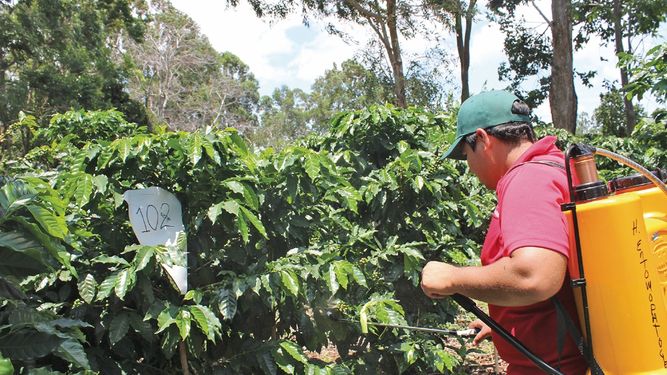Insect that ravages coffee harvest may have hope to being mitigated
- By : Panama Now
- Category : Agriculture, Economy, Environmental, Infrastructure

When the rainy season begins, the insect of the coffee borer takes advantage to attack.
The Hypotenemus hampei , also known as coffee borer, punches the mature grain and severely damages the quality and flavor of the product. Its effect is so devastating, that it reduces coffee production by 50% or more, depending on the climatic conditions in which it develops.
To try to control this disease, agricultural researchers from the Institute of Agricultural Research of Panama (Idiap) discovered a fungus that is capable of eradicating the insect in three days.
Isaria is a fungus that has a biological control superior to Beauveria bassian, also used for the management of the coffee berry borer. Through field tests, it was observed that Isaria produces an alteration in the behavior of the drill, acting on the nervous system, which subsequently causes death, said José Ángel Lezcano , manager of the Research Project on the Integrated Management of Roya and Broca del Café del Idiap.
———-
READ MORE:https://impresa.prensa.com/economia/Descubren-hongo-podria-controlar-broca_0_5027497280.html



No Comments